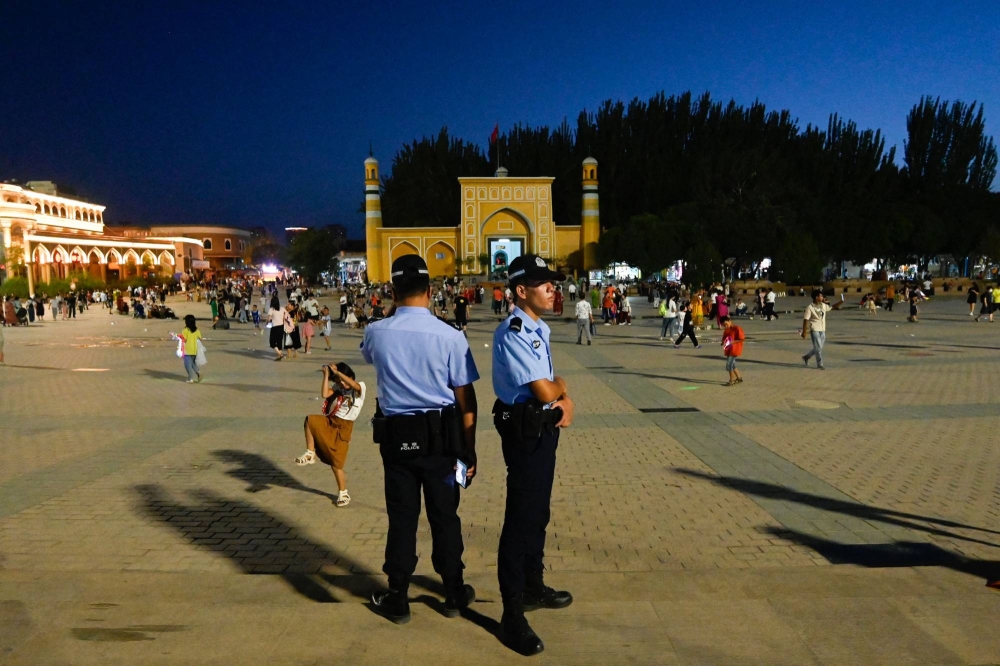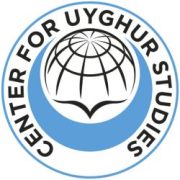
East Turkistan, (AKA Xinjiang Uyghur Autonomous Region), is the ancestral homeland of the Uyghur and other Turkic peoples, who are mostly Muslim. Since 1949, it has been under Chinese occupation. Since its occupation, the Chinese authorities have been trying to erase the cultural and religious identity of Uyghur and other Turkic Muslims. This region is important because it links Asia and Europe and has valuable natural resources like minerals and fertile land. China wants to absorb East Turkistan into its culture and remove Uyghur identity.
Over the years, Chinese leaders, like Mao Zedong, have tried different ways to make Uyghurs more like the Han Chinese people. They encourage Han Chinese people to move to East Turkistan, changing the population mix. The government also controls education, promoting Chinese communist ideas and discouraging Uyghur language and customs. Since 2017, the Chinese authorities have built what they called “re-education centers”.
Numerous such facilities were built across East Turkistan and have been officially described by the Chinese government as vocational training centers. However, accounts from those who have survived these camps paint a different picture, suggesting that the intent behind these institutions is to forcibly suppress Uyghur religious beliefs and ethnic identity. Notably, intellectuals and community leaders were among the first to be detained.
Testimonies of survivors, independent media reports and leaked Chinese government officials documents indicate that detainees are coerced into renouncing their identity and pledging allegiance to the Chinese Communist Party and its leaders, with resistance allegedly met with severe punishment. The most tragic victims of these camps are women, with reports of sexual abuse and rape by camp guards. Additionally, there have been alarming allegations of organ harvesting from Uyghur detainees.
Life outside the centers isn’t much better. Uyghurs face restrictions on their religious practices and even basic communication with family members. The Chinese officials also try to make Uyghurs live more like the Han Chinese. They’ve put Han Chinese people in Uyghur homes to watch them and stop them from practicing their religion. This has made life hard for many Uyghurs, who are constantly watched and controlled.
Some who have undergone what is claimed to be indoctrination in these centers have been subjected to trials in what is reported as courts, leading to imprisonment or forced labor in Chinese factories.
Allegations of human rights violations also include reports of forced sterilization of Uyghur women, to diminish the population growth within East Turkistan. The reported decline in birth rates by over 80 percent in the past years is attributed to such practices.
Another victim of the Uyghur Genocide is Uyghur children, who have been separated from their families. It is estimated that nearly a million Uyghur children have been placed in state orphanages and boarding schools. The aim, as reported, is to cut their connection to their Uyghur identity and raise them as loyal citizens to the CCP.
Furthermore, the Uyghurs in the diaspora cannot communicate with their families in East Turkistan since 2017, as communication with people abroad was used as a pretext to send Uyghurs into concentration camps.
The cultural erasure also extends to the destruction of mosques. Since 2017, around 16,000 mosques have been damaged, completely demolished, or converted into restaurants and bars. By targeting places of worship, the CCP aims to erase the traces of Islamic civilization in East Turkistan.
Reflecting upon this prompts the question ‘Why does the CCP do this to Uyghurs?’ The motivation behind the CCP’s genocidal policies can be considered from two angles: the drive to integrate East Turkistan into the broader Chinese communist nation and the pursuit of economic and diplomatic interests by the Chinese Communist Party.
Economically, East Turkistan is important to China because of its resources and strategic location. China wants to control the region to benefit its economy. President Xi Jinping’s policies, like the Belt and Road Initiative, aim to increase China’s influence globally. However, these projects often benefit China more than the countries they’re supposed to help.
China wants to dominate the global economy, and East Turkistan is key to that plan. This is why they’re trying to erase Uyghur culture. Many countries and organizations have called out China for its actions, but more needs to be done. People can help by learning about the situation, spreading awareness, and boycotting products made with forced labor.
Xi Jinping’s rise to power in China marks a significant period in this context. His leadership has introduced colonial projects, like the Belt and Road Initiative launched in 2013, which is often presented as a means to foster economic and social development worldwide. Yet, the BRI’s actual benefits are subject to debate. While the initiative has involved numerous countries, the primary beneficiaries seem to be Chinese state interests, given that Chinese companies often carry out projects, provide financing, and supply labor.
The BRI’s impact extends across Africa and the Middle East, regions that are strategic for China’s access to resources and investment opportunities. The massive scale of these projects and the investment in the Muslim world have been highlighted by Chinese officials, with significant financial figures cited. However, there’s concern about the debt burden these projects can impose on host countries, as evidenced by situations like Sri Lanka’s. Furthermore, the BRI’s operations and long-term implications are being scrutinized across various African nations.
East Turkistan is indispensable for the BRI, which will make China the world’s largest economic power. The fact that the homeland of the Uyghurs is located in a position connecting China to Central Asia and the Middle East is one of the most important reasons for the Beijing Government to Sinicize East Turkistan. Four of the six major trade corridors under the BRI pass through East Turkistan and reach other regions. Kashgar, one of the historical cities of East Turkistan, is also adjacent to Pakistan, where the largest investments are made within the scope of BRI. Special commercial zones have been created here. It is noteworthy that a year after the announcement of the BRI in 2013, concentration camps were established in East Turkistan. Since 2017, when BRI projects accelerated, millions of Uyghurs have been sent to concentration camps.
These crimes committed by the Chinese Communist regime against humanity, contrary to democracy, human rights and universal values, have resonated with international public opinion. So far, 12 countries have recognized CCP’s policies in East Turkistan as genocide and or crimes against humanity. The United States was the first government in the world to recognize the Uyghur Genocide, when Secretary Mike Pompeo declared that he designated Chin’s crimes against the Uyghurs as Genocide in January 2021. In its August 2022 report, the UN High Commissioner for Human Rights revealed that “China might have committed international crimes including crimes against humanity against Uyghurs”. Uyghur Tribunal, an independent people’s Tribunal in London has recognized that China has committed the crime of genocide in 2022 as well.
In this regard, the silence of many Islamic countries on this issue is troubling. The Islamic world, which is under the economic, diplomatic and political influence of China, is subjected to heavy disinformation by the Beijing government. As a result of this disinformation and China’s strategic and economic leverage over the Islamic World, most of the Muslim-majority countries have stood silent and supported China over the Uyghur Genocide.
Last but not least, it should be noted that hopelessness is not an option. Please visit Uyghurstudy.org, educate yourself and others, speak out for the Uyghurs, and raise awareness about their situation. One of the most effective ways to stand up against the Uyghur Genocide is to boycott products tainted with Uyghur Forced Labor.
Copyright Center for Uyghur Studies - All Rights Reserved
